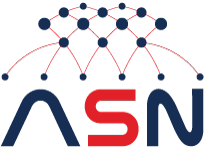
America and the World in the Sixties
Multidisciplinary Perspectives on American Foreign Relations During the Kennedy and Johnson Administrations (1961-1969)
Where: Université de Versailles-Saint Quentin-en-Yvelines and Université Paris-Saclay
When: October 22nd-24th, 2025
Description: The 1960s were tumultuous for the foreign policy of the United States and its status in world affairs. The decade marked the closest that the planet ever came to a nuclear war between two superpowers and also marked the deepening of the war in Asia that generated the greatest domestic crisis since the end of the Civil War. Both Presidents John F. Kennedy and Lyndon B. Johnson witnessed other serious events that injected portent –whether the emergence of the People’s Republic of China as a nuclear power, or the challenge to NATO that the French Fifth Republic posed, or the Soviets’ military invasion of Czechoslovakia, or the war in the Middle East. Although the United States was presumed to be at the pinnacle of its power during the sixties, the end of the decade raised questions about the wisdom and skill of American leadership of the Western alliance.
In the wake of World War II, the nation fixated on a policy of containment that climaxed in the Cuban missile crisis during Kennedy’s administration and resulted, during Johnson’s presidency, in one of “the worst foreign policy disaster[s]” (Dallek, 1999, 626) in American history, namely the Vietnam War. These two pivotal episodes have become emblematic of the period and their respective presidents. While not excluding these milestones, the various interactions between the American nation, its allies, its enemies and the non-aligned countries also offer rich ground for reexamining, through the multidisciplinary lens, broader foreign policy choices leading to miscalculations, stalemates and successes.
Arguably, US foreign policy during the 1960s stood at the crossroads between “hard” and “soft power” (Nye, 1990), war and diplomacy, an oscillation that JFK craftily articulated in his 1961 speech at the University of Washington. Potential areas of study could include a reexamination of the evolution of the United States’ diplomacy as an increasingly powerful tool in shaping American relations with the world. For the most part, American foreign relations were dominated by a proactive diplomatic stance during both the Kennedy and Johnson eras when both presidents displayed distinct negotiating skills. After all, the United States had actively sponsored the creation of major international organizations like the United Nations and the World Bank that aimed to preserve peace and increase cooperation. These efforts also provided the means for the United States to consolidate their leadership other than solely through its hard power.
Institution: Centre d’histoire culturelle des sociétés contemporaines (CHCSC)
For more information, click here.
